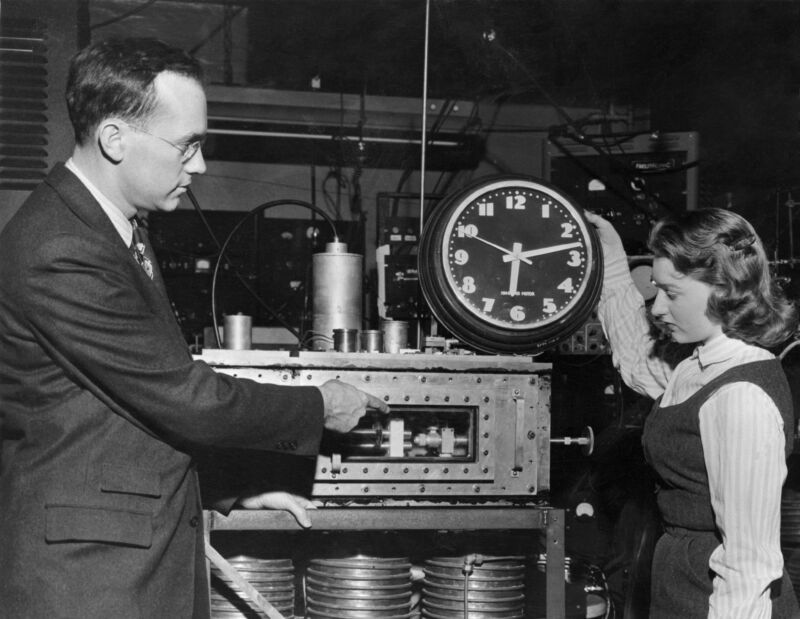
One of the leading thinkers on how humans track time has a big, if simple, proposal for dealing with leap seconds: Don't worry about them. Do leap minutes instead, maybe one every half-century or so.
"We all need to relax a little bit," said Judah Levine, leader of the Network Synchronization Project in the Time and Frequency Division at the National Institute of Standards and Technology (NIST), to The New York Times. Leap seconds—when coordinated, near-impeccable atomic time is halted for one second to synchronize with the Earth's comparatively erratic movements—are a big headache, especially to computer technology.
The International Bureau of Weights and Measures (IBWM) has already voted to eliminate leap seconds entirely by 2035, or at least how they are currently implemented. Levine plans to submit a paper outlining a "leap minute," timed to the next World Radiocommunications Conference held by the International Telecommunication Union (ITU). Starting November 20 in Dubai, United Arab Emirates, the world's radio and communications policymakers will debate various measures and standards. The Times suggests Levine's paper may be published after the conference, but awareness of it—including the Times story itself—should make it a point of contention.
The "leap minute" proposal, as suggested by Levine's interview, would hew closely to what the IBWM has already decided: let Universal Coordinated Time (UTC) remain bound to a radiation-perfect clock, then occasionally bring it back in line with the earth's relatively more volatile movements. Instead of doing so whenever the two times have slipped by 0.9 seconds, worldwide timekeepers would instead aim for a minute's correction.
Dealing with leap seconds, especially across the networked world, has frequently caused organizational trauma. Leap seconds in 2012 and 2017 have caused regular outages and problems early on New Year's Day. Staging a leap across servers and time zones has resulted in complicated schemes, like leap smearing over 17 hours or so. The effort and hazards have led many companies, including Meta, to petition for an end to it. Who could oppose such a call to non-action, to letting time slip just a bit, maybe a minute over a half-century to prevent more frequent, more traumatic, corrections?
The Russians, for one. The head of the IBWM (or BIPM in French) said in November 2022 that Russia opposed the dropping of leap seconds because it wanted to wait until 2040. The nation's satellite positioning system, GLONASS, was built with leap seconds in mind, and reworking the system would seemingly be taxing. The Times describes the Russians as arguing "vigorously if mysteriously" for keeping the leap second, and quotes the head of the NIST's Time and Frequency Division as stating that "nobody fully understands" their opposition. "They never really give a good answer."
There's also the Vatican, which has concerned itself with astronomy since at least the Gregorian Calendar, and may also oppose the removal of leap seconds. The Rev. Paul Gabor, astrophysicist and vice director of the Vatican Observatory Research Group in Tucson, Arizona, has been quoted and cited as opposing the deeper separation of human and planetary time. Keeping proper time, Gabor wrote his 2017 book The Science of Time, is "one of the oldest missions of astronomy."
"In the current Leap Second Debate, there are rational arguments, focused on practical considerations, and there is a certain unspoken unease, emerging from the symbolic substrata of the issues involved," Gabor writes, seemingly on behalf of those unspeaking.
Levine told the Times that he didn't hold out much hope for a leap year, or even simple abandonment of the leap second, happening at this year's world conference but that new methods may be determined at "other conferences that don't require full consensus."
reader comments
173 with